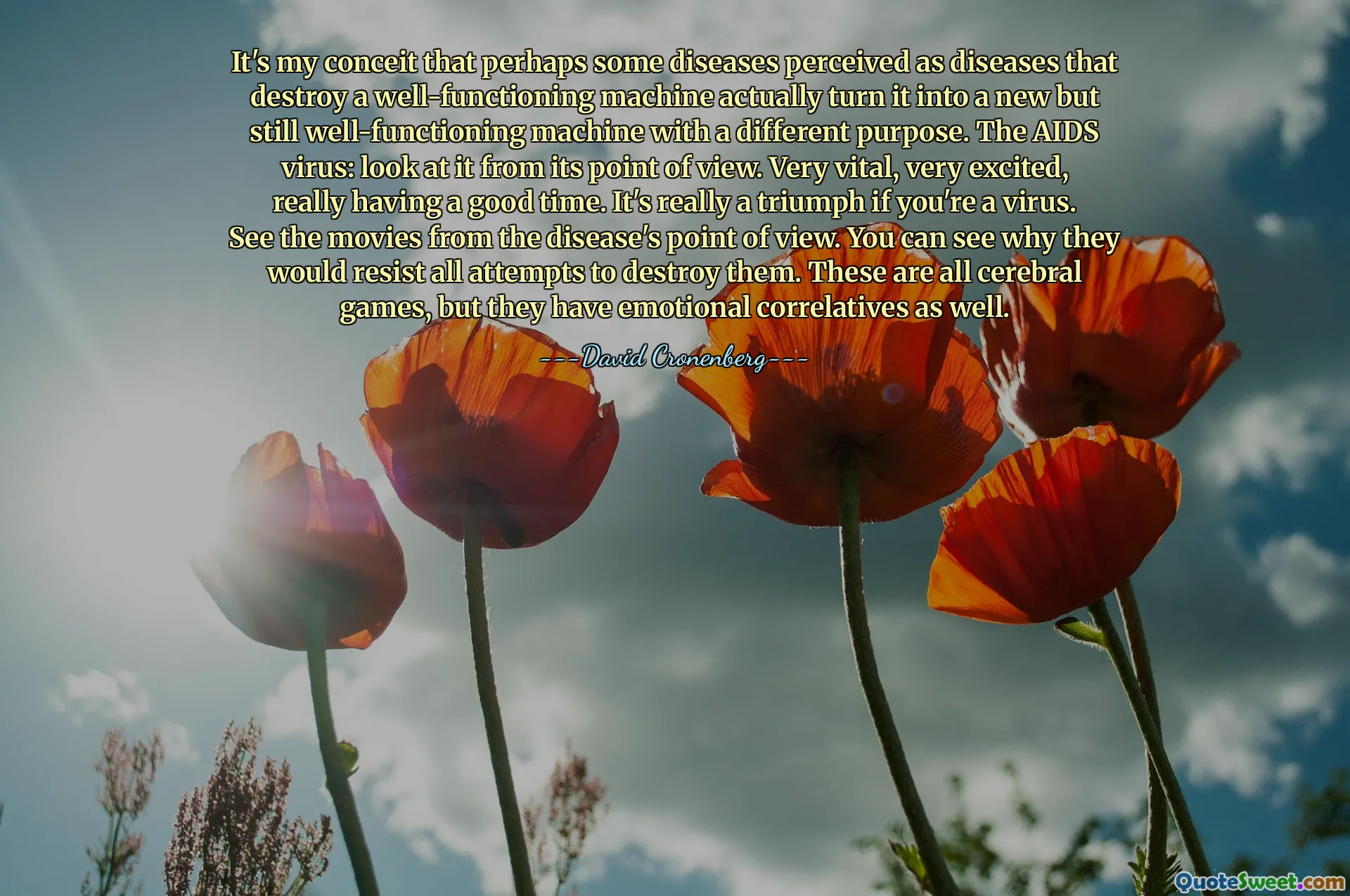
It's my conceit that perhaps some diseases perceived as diseases that destroy a well-functioning machine actually turn it into a new but still well-functioning machine with a different purpose. The AIDS virus: look at it from its point of view. Very vital, very excited, really having a good time. It's really a triumph if you're a virus. See the movies from the disease's point of view. You can see why they would resist all attempts to destroy them. These are all cerebral games, but they have emotional correlatives as well.
This quote offers a provocative perspective on illness and disease, particularly emphasizing the idea that what we perceive as destructive or harmful can, in some cases, be viewed differently—almost as a transformation rather than mere destruction. The metaphor of a disease turning a well-functioning 'machine' into another, yet still functional, entity challenges traditional notions of health and pathology. It suggests that certain pathogens like the AIDS virus may serve a purpose beyond mere destruction; they could be viewed as agents of change, reprogramming the biological or even metaphorical systems they infect.
The notion of seeing from the virus's point of view invites a broader reflection on perspectives and the subjectivity of experience, even in entities generally regarded as antagonistic or destructive. This shift in outlook encourages us to think about the complexity of biological interactions and the interconnectedness of life processes, where what appears to be an end might instead be a transformation.
Furthermore, the mention of these as 'cerebral games' with 'emotional correlatives' piques interest in how disease and health are intertwined with emotional and psychological states, and how understanding these interactions could influence our responses to illness. It prompts us to reconsider the stigmatization of diseases and pathogens and consider more nuanced, empathetic views that recognize the dynamic and adaptable nature of life forms—even those that threaten human health.
Overall, this quote embodies a philosophical exploration of the nature of life, destruction, and transformation, urging us to look beyond traditional dichotomies and embrace a perspective that is complex, integrative, and perhaps even hopeful in recognizing the potential for renewal amid chaos.











